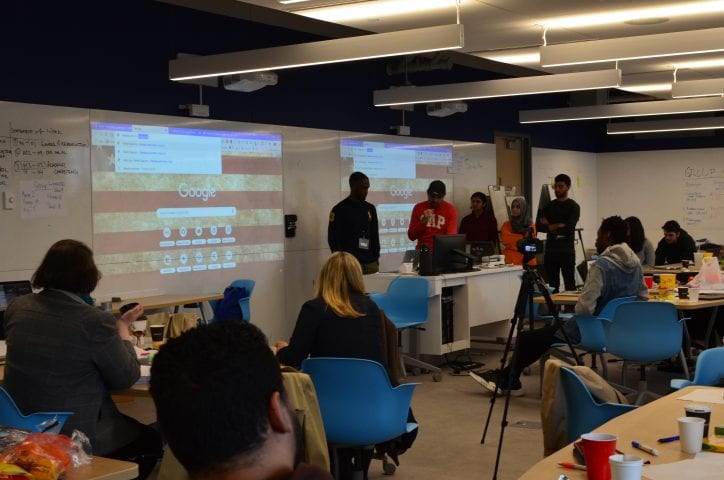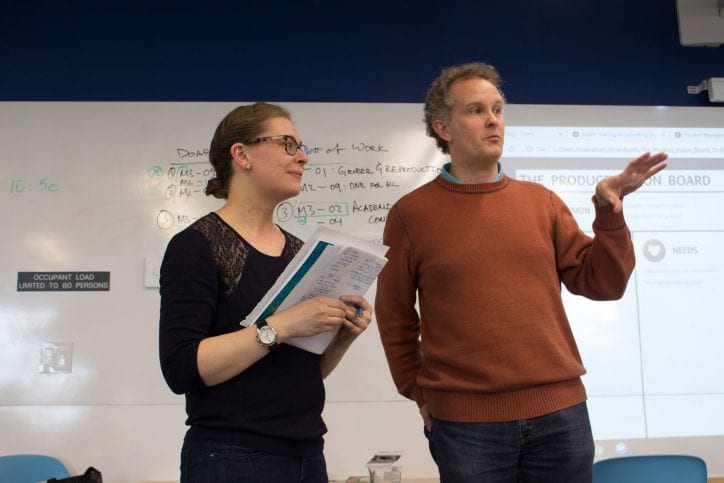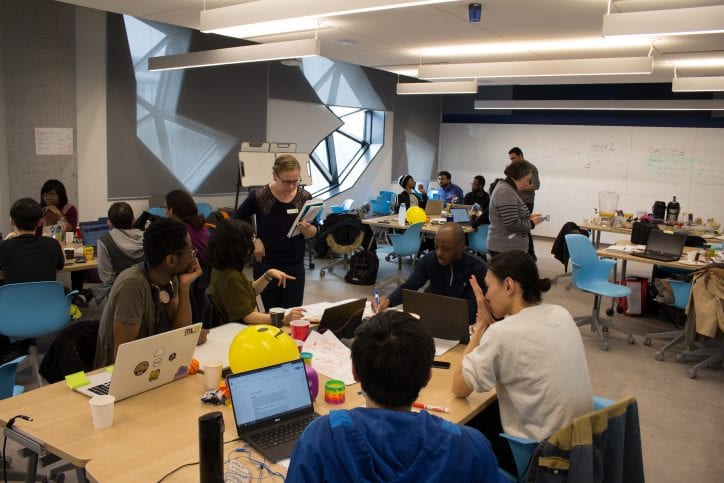HOW CAN GNL BENEFIT MY LEARNING AND TEACHING EXPERIENCE?
Globally networked learning (GNL) provides students with the opportunity to reflect on their educational experience by discussing it with peers in cross-cultural settings. It gives them a platform to share these learning experiences with global partners and to contribute to a better understanding of transnational issues at stake in the twenty-first century. As a form of experiential learning, GNL pedagogy allows students to explore and assess different conceptual and analytical frameworks, design projects, share research findings, and give and receive feedback in conversation with students and faculty from multiple social, political and economic contexts. It:
- prepares students for future academic success and careers that require international and/or intercultural experience;
- helps to develop students’ ability to work on projects that require global collaboration and decision-making; and
- provides students with concrete skills and training in global competence, internationalization, global citizenship, inter-cultural education, and inter-cultural sensitivity – things that are important in an increasingly global job market.
On the other side of the equation, GNL provides higher education instructors with an opportunity to:
- experiment with open pedagogy, experiential education, and bring new dimensions or perspectives to their courses and projects;
- collaborate with international colleagues on joint activities or even co-develop new courses and research projects with researchers internationally; and
- engage their students in practices or research without paying the cost of going abroad.
Partners may be from transnational academic communities, non-governmental organizations or industry. Though these collaborations, instructors are able to expand the repertoire of individual and institutional teaching methods and are able to pursue innovation in how they can develop and deliver research content to students, colleagues and non-academic communities. Pedagogically, GNL pushes faculty members to design and establish critical learning practices and research goals that foster, stimulate and nurture projects and initiatives open to the participation of researchers and students from different economic, social and political backgrounds.
Through GNL, students and instructors members can expand their learning and teaching communities, test their hypotheses and perspectives drawn from other cultural settings, and explore how research findings hold up beyond the Canadian context. This is particularly important for students and instructors who are unable to study/teach abroad to gain greater global awareness or build relationships with people from different geographical locations.
IF YOU ARE A STUDENT AT YORK UNIVERSITY:
Are you an undergraduate or graduate student who is interested in international mobility, experiential learning, and developing your intercultural competency and plurilingual communication? Do you want to develop strong problem-solving skills for today’s complex problems? Here are some resources you may wish to consult.
- Globally Networked Learning at York University
- Open Pedagogy as a Creative Process: A Transnational Exploration of Student-Centered Learning Design: Presented at Teaching in Focus Conference, Toronto, York University | May 15, 2019
IF YOU ARE A FACULTY MEMBER AT YORK UNIVERSITY:
Are you a York University faculty member who is interested in student-centered learning and open pedagogy? Are you planning to develop and mount a GNL course? Here are some resources you may wish to consult.
- Globally Networked Learning Course/ Module/ Activity Development: Instructor Guide (English)
- Globally Networked Learning Course/Module/Activity Development: Instructor Guide (French)




